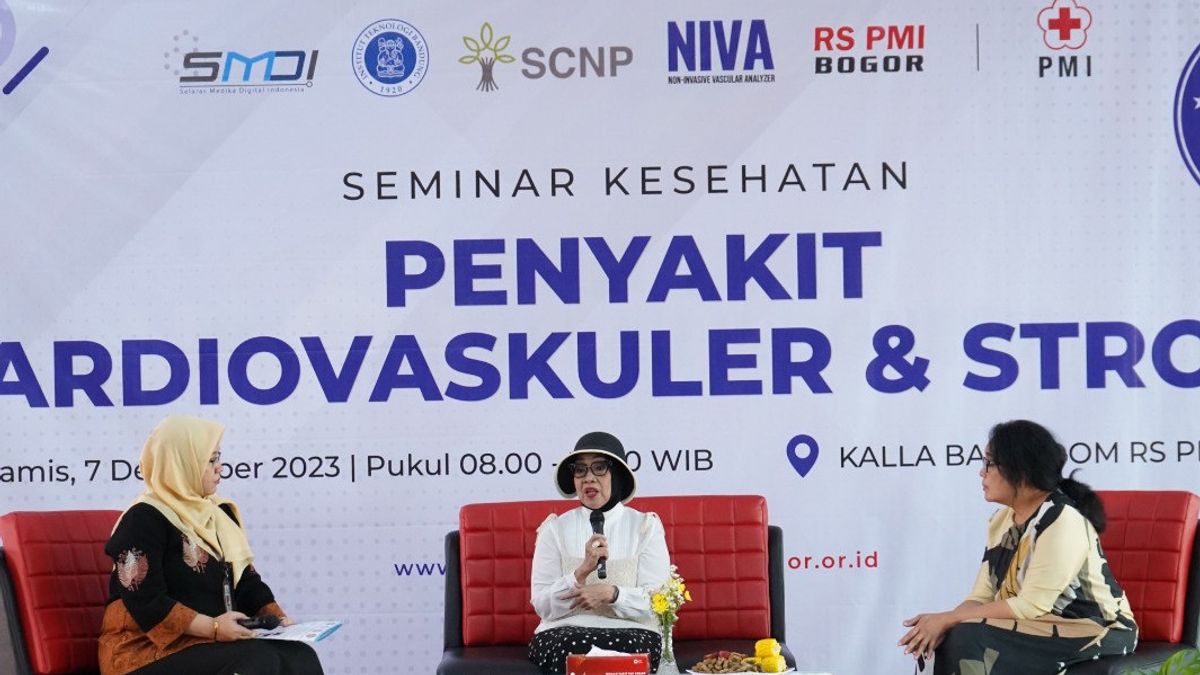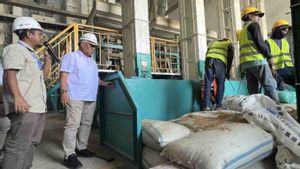
JAKARTA - The development of the medical industry in Indonesia continues to grow. However, this condition has not been balanced with the availability of adequate local production medical devices. Based on data from the Indonesian Ministry of Health in 2023, the domestic pharmaceutical and medical device industry in the country is still experiencing dependence on other countries, ranging from raw materials to technology.
The Director General of Pharmaceuticals and Medical Devices of the Ministry of Health, Lucia Rizka Andalucia, said that during the pandemic period we had bad experiences, such as difficulty getting medicine, medical devices to oxygen.
"Seeing this, we are reorganizing the right steps for the benefit of the community. The Ministry of Health is committed to carrying out health transformation with six pillars, namely the transformation of primary services, referral services, Human Resources (HR), health security, financing and digital systems," he said in a written statement, Thursday 7 December.
According to him, primary health services are more important than just treating. The need for health in the country will grow.
"At least the need for medical devices can also grow about 12 percent in 2023," said Lucia Rizka in her speech at the Seminar on Health, Cardiovascular Disease and Stroke at PMI Hospital, Bogor.
This growth condition still faces challenges from the supply of medical devices. Lucia said that there are still many medical devices that are imported products.
At least 70 percent of medical devices in Indonesia are still imported from other countries. On the other hand, state investment from the state budget for health research is still low at only 0.2 percent from the state budget.
Seeing the high demand for medical equipment and still dominated by imports, STEI-ITB and PT Selaras Citra Nusantara Perkasa Tbk (SCNP) collaborate to conduct research and development activities, namely NIVA (Non-Invasive Vascular Analysis).
"Imports of medical devices are no longer allowed by the government, and we are currently 42.6 percent. Currently, NIVA products have entered the Ministry of Health's E-catalog so that it can be purchased by government-owned hospitals," said the senior cardiac specialist, Jetty H Sedyawan.
Now NIVA has obtained a distribution permit because it has officially obtained permits from the government and is in the socialization and distribution stage. He said that in Palembang there are currently 10 Centers for Health Laboratorys (BBLK) that use NIVA, LEPHANNAS and also the Ministry of Health.
Currently, more than 100 NIVA units have been sold and targeted to sell for up to 1000 units by 2024. The price of one NIVA unit is priced at Rp253 million. In fact, he said that the products from the SCNP and STIE-ITB collaboration had also been looked at by Kimia Farma.
This lack of medical equipment AKD is one of the main reasons for PT Selaras Citra Nusantara Perkasa Tbk (SCNP) entering the realm of the production of medical devices related to heart and blood vessels, in addition to realizing SCNP's real support for the government for health programs which are one of the priorities in the 2023 State Budget.
NIVA (Non-Invasive Vascular Analyzer) has obtained a domestic medical equipment distribution permit from the Ministry of Health of the Republic of Indonesia. Published in March 2023, the distribution permit was granted through PT. Harmonal Citra Nusantara Perkasa, Tbk (SCNP). With this, NIVA became the first domestic medical device (AKD) to be officially used.
For distributorship, SCNP partners with PT Selaras Medika Digital Indonesia (SMDI). AKD distribution strategy by distributors will focus on efforts to develop a network of heart and blood vessels health service providers as users of NIVA screening services.
Explicitly, his business strategy is to build good and strong relationships with manufacturers, which allows distributors to invest in medical equipment products offered to target markets. The company is also developing a network of health service providers to ensure that devices arrive (delivered) to end users in good condition.
관련 항목:
SCNP will create effective marketing and sales strategies, which include advertising utilization, social media, and other promotional initiatives to reach potential customers. Providing logistics management services and inventory systems for medical equipment products, which include storage, packaging and shipping to customers on time and efficiently.
This strategic partnership between manufacturers will greatly assist the Government in the downstream program of domestic medical device research products. With the presence of NIVA to the domestic market, public access to heart and blood vessel screening services is increasingly possible, due to the relatively affordable cost of NIVA screening compared to similar medical devices which are currently dominated by imported products.
Referring to data on the BPJS Health website, heart disease and blood vessels are still the top killer disease. The data states that cardiovascular disease is still the government's main concern in terms of financing the National Health Insurance (JKN) program.
This is due to heart disease, which is catastrophic category and is a disease that costs a lot in the JKN program which is very burdensome to the State Budget. It is necessary to synergize various parties in the industry supported by the Government in order to effectively realize heart and blood vessels health programs in budget savings efforts.
With the presence of AKD NIVA in the health industry in Indonesia, it is hoped that this tool can provide benefits in efforts to prevent heart disease and blood vessels in Indonesia.
The English, Chinese, Japanese, Arabic, and French versions are automatically generated by the AI. So there may still be inaccuracies in translating, please always see Indonesian as our main language. (system supported by DigitalSiber.id)













